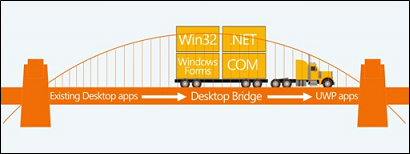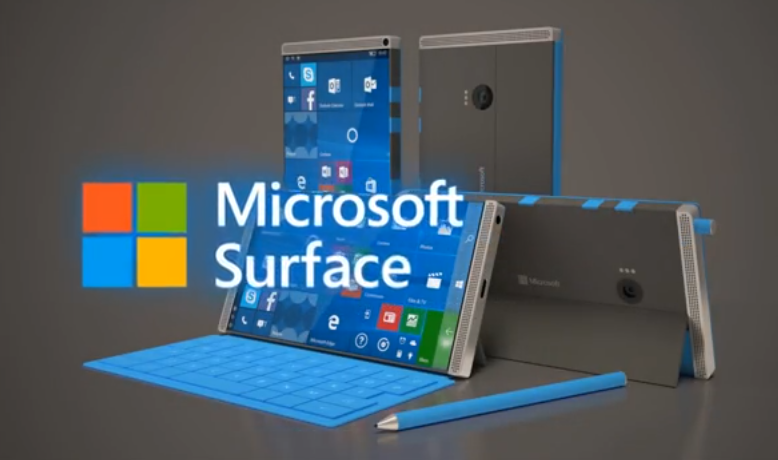Let’s face it. There probably won’t ever be a device from Microsoft called Surface Phone. What there will be, eventually, is a family of cellular PC devices that will deliver everything promised by Surface Phone. A family of “ultimate mobile devices,” per Microsoft CEO Satya Nadella.
But for the sake of following tradition, let’s alternate between calling it Surface Phone and Cellular PC, because we don’t know what it’s ultimately going to make an appearance as when it debuts in the fourth quarter of 2017.
Make no mistake: I’ve said it before and I’ll say it again – Surface Phone is not a smartphone. Not in the conventional sense. Yes, there will be one version of the Cellular PC – possibly a 6-inch device – that will fit into your pocket, have all the UWP apps that are on Windows Store and bring in a host of Win32 desktop applications via the x86 emulation on ARM feature. But it’s not a smartphone in any other sense.
That’s why it cannot be compared with iPhone 8 or any of the other flagship smartphones coming this year from Apple, Samsung and Google. Nor will it compete in the same segment as those devices.
Smartphones – as we now know them – are also mobile devices, similar to what the Surface Phone avatars will be, but they run on mobile operating systems like iOS and Android. They cannot run a desktop operating system like Windows 10, which the Cellular PC can.
Moreover, the apps available to such a device have been developed and refined over decades, not by mobile app developers over the past nine years since the launch of App Store. Desktop apps are more robust, have greater functionality and essentially offer greater depth of interactiveness than mobile apps.
To drive that point even further, even the universal windows apps built on the Universal Windows Platform (UWP) are not the same as desktop apps. Desktop apps need to have their binaries repackaged as UWP apps so they can run across multiple device types.
Pictorially, Microsoft represents it like this:

What Surface Phone, a la Cellular PC, proposes is to bring desktop apps as they are into the mobile experience.
Take a moment to digest that, because it is at the heart of the Surface Phone concept, and it is what the Cellular PC will begin to offer in its first iteration.
It’s not going to be perfect when it first comes out. We’re not likely to see bugs or anything, but some of us might find it a little hard to interact with traditional Windows desktop applications on a touchscreen device. That’s just the phenomenon of smartphones having habituated us to a particular type of user experience, something we’ll get over very quickly because of our prolonged engagement with traditional desktop apps.
That’s why the Cellular PC is going to be like no other smartphone, and that’s why it won’t be competing with any of the premium mobile devices that are being launched this year – not the iPhone 8, not the Google Pixel 2, not the Samsung Galaxy Note 8 or any other premium smartphone coming in 2017 – or in the next few years, for that matter.
In the past, I’ve spoken about how Google has been trying to do the same thing in different ways: progressive web applications (PWAs) for smartphones, android apps on Chrome OS machines via Play Store, and even a hybrid operating system called Andromeda that attempts to fold Android into Chrome OS.
But the ability of a “smartphone-like device” to run desktop applications is an entirely different thing.
Desktop apps are the legacy of an era of personal computing that is on the verge of extinction. No, desktops aren’t going to become extinct any time soon, but the way they interact with software is already changing because of cloud computing and the emergence of Software-as-a-Service. And Microsoft is at the helm of that as well, even though companies like Salesforce were the true pioneers that blazed a trail for others to follow.
By bringing desktop apps to the world of mobility – aka the smartphone world – Microsoft is attempting to bridge that Great Device Divide I’ve been talking about that is the result of the completely divergent direction that mobile software took when smartphones started becoming popular.
That’s what the Surface Phone concept stands for, and that’s why it is futile to try and compare it with any smartphone on the market today. iPhone 8, Pixel 2, Galaxy S8, Note 8 are all great devices, but they’re smartphones – something that Surface Phone is most emphatically NOT.
We need to be clear about that because, when all these devices are released alongside Surface Phone’s first avatar as the Cellular PC later this year, we shouldn’t be confused about which device to buy. If a smartphone experience is all we’re looking for, by all means let’s pick up an iPhone 8 or a Pixel 2. They’re great devices with great capabilities and access to millions of mobile apps that we all love and even depend on.
But if we’re after bleeding-edge technology that blurs the boundaries between desktops and smartphones, then Surface Phone’s avatar as the Cellular PC is IT. No question.
ALSO SEE: First Steps Towards Surface Phone, Windows 10 Cellular PC Coming in Q4 2017
Thanks for visiting! Would you do us a favor? If you think it’s worth a few seconds, please like our Facebook page and follow us on Twitter. It would mean a lot to us. Thank you.



